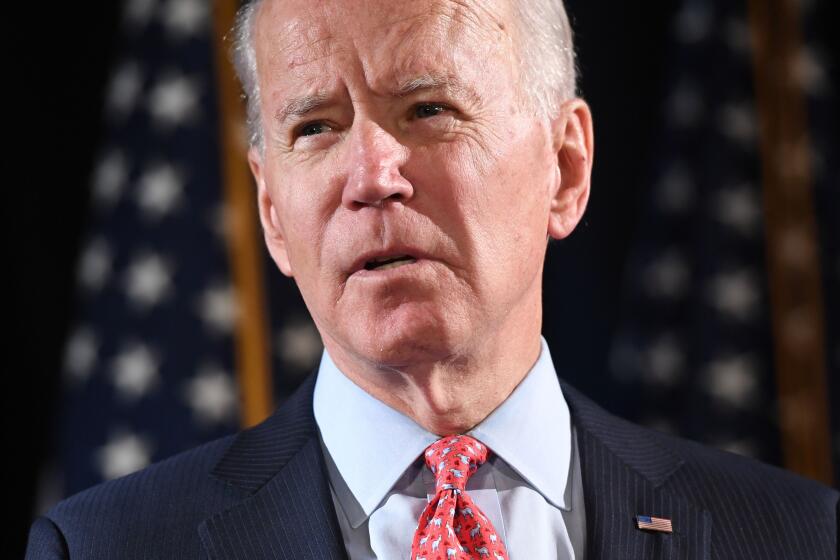Medicare for all, and how candidates line up for or against it became a proxy war for the broader philosophical fight between the progressive and moderate wings of the Democratic Party. But there’s a lot more to healthcare policy than Medicare for all.
Most of the Democratic candidates delved into some of the other major issues pertaining to Americans’ well-being, including combating the opioid crisis, expanding mental health treatment and addressing the country’s poor maternal-health outcomes.
Biden and Sanders both support abortion rights and back codifying into federal law the 1973 Supreme Court ruling in Roe vs. Wade that legalized the procedure nationwide. They also support repealing the Hyde amendment, which largely prohibits federal dollars from paying for abortions. Both candidates have excoriated President Trump for his response to the coronavirus outbreak.
Biden
Biden has been a vocal critic of Medicare for all, arguing that it would be too costly. Instead, the former vice president proposes building on the Affordable Care Act by offering a public health insurance option that would be financed primarily through higher taxes on capital gains. People could also stay on their employer-based coverage or buy into a private plan on their own.
His plan would increase tax credits to ensure no one is spending more than 8.5% of their income on insurance. To lower drug prices, he would allow the federal government to negotiate with pharmaceutical companies, and he wants to limit launch prices for drugs that face no competition and to limit price increases for all brand and biotech drugs and high-priced generics to inflation. He would allow consumers to import drugs from other countries, as long as they are certified safe, and would terminate drug companies’ tax breaks for marketing costs.
Sanders
Sanders is the candidate most closely associated with Medicare for all. After all, as he likes to say, he “wrote the damn bill!” His plan would do away with private insurance companies. Instead, his proposal would cover all residents, including those without legal status, under a government-run plan that would have no out-of-pocket costs for consumers except for prescription drugs. He has proposed financing the plan through a payroll tax on employers, higher income taxes on families making more than $29,000 per year and higher taxes on the wealthy.
The government would negotiate with drugmakers over prescription prices, and he would also allow patients, pharmacists and wholesalers to buy from Canada and other industrialized countries. He wants to peg medication prices to the median drug price in Canada, the United Kingdom, France, Germany and Japan. He has introduced legislation to prohibit illegal marketing and distribution of opioids and calling for criminal liability for drug company executives and for manufacturers to reimburse the country for the negative effects of their products.
To address shortages of healthcare providers, especially in the mental health fields, he wants to increase funding for the National Health Service Corps.










